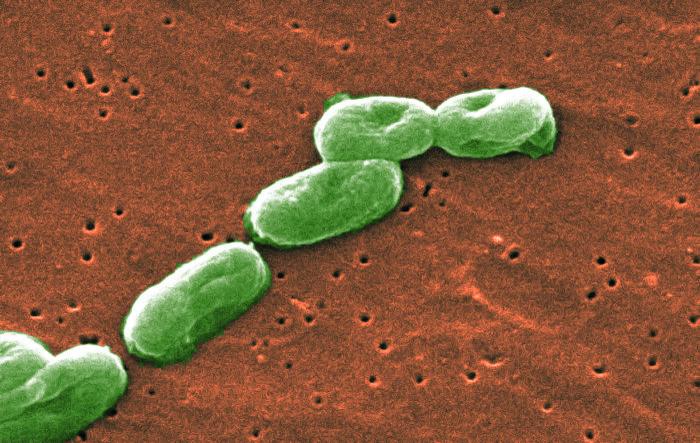NewsDesk @bactiman63
The Pennsylvania Department of Health, along with federal health officials report investigating multiple clusters of non-respiratory Burkholderia cepacia complex (Bcc) infections associated with ultrasound gel produced by Eco-Med Pharmaceuticals Inc.

To date, a total of 65 positive Bcc cultures from 14 facilities located in Philadelphia (7), Montgomery (2), Dauphin (2), Allegheny (1), Bucks (1) and Chester (1) counties have been identified. The positive Bcc cultures were obtained from the following sources: blood (55), sputum (4), abdominal fluid/drainage (2), wound (1), amniotic fluid (1), peritoneal fluid (1) and bile (1). No patients in these heterogenous clusters are known to have cystic fibrosis.
On August 18, 2021, the FDA issued updated information regarding Eco-Med ultrasound gels and lotions, expanding the limited voluntary recall issued on August 4, 2021 to now include all ultrasound gels and lotions manufactured by Eco-Med Pharmaceutical, Inc. The FDA is asking all healthcare providers and healthcare facilities to immediately stop using and discard all Eco-Med manufactured ultrasound gels and lotions due to the concern for contamination with Burkholderia cepacia complex bacteria.
Subscribe to Outbreak News TV on YouTube
According to the CDC, Burkholderia cepacia (also called B. cepacia) is the name for a group or “complex” of bacteria that can be found in soil and water. B. cepacia bacteria are often resistant to common antibiotics.
B. cepacia poses little medical risk to healthy people. However, people who have certain health problems like weakened immune systems or chronic lung diseases, particularly cystic fibrosis, may be more susceptible to infections with B. cepacia. B cepacia is a known cause of infections in hospitalized patients.
- Legionella: A waterborne bacterium of major concern
- Saudi Arabia reports 12th MERS coronavirus case of 2021
- Wisconsin issues mosquito-related illness warning after 4 horses contract EEE
- Alabama health officials issue ivermectin warning
- Hawaii reports record high one-day case count of 1678
- Arizona: More than 3.5 million residents are fully vaccinated
- Florida Poison Control reports spike in cases related to ivermectin, Most involve meds for livestock
- Pfizer vaccine: Side effects are likely mild to moderate in 12-15 year olds at high risk of COVID-19 complications, Clear up quickly
- Dengue in Bangladesh pushes 10K cases, DENV-3 predominates in Dhaka
- Singapore health minister: ‘We have crossed another milestone, where 80% of our population has received their full regimen of two doses’


One thought on “Pennsylvania investigates clusters of Burkholderia cepacia complex linked to ultrasound gel”